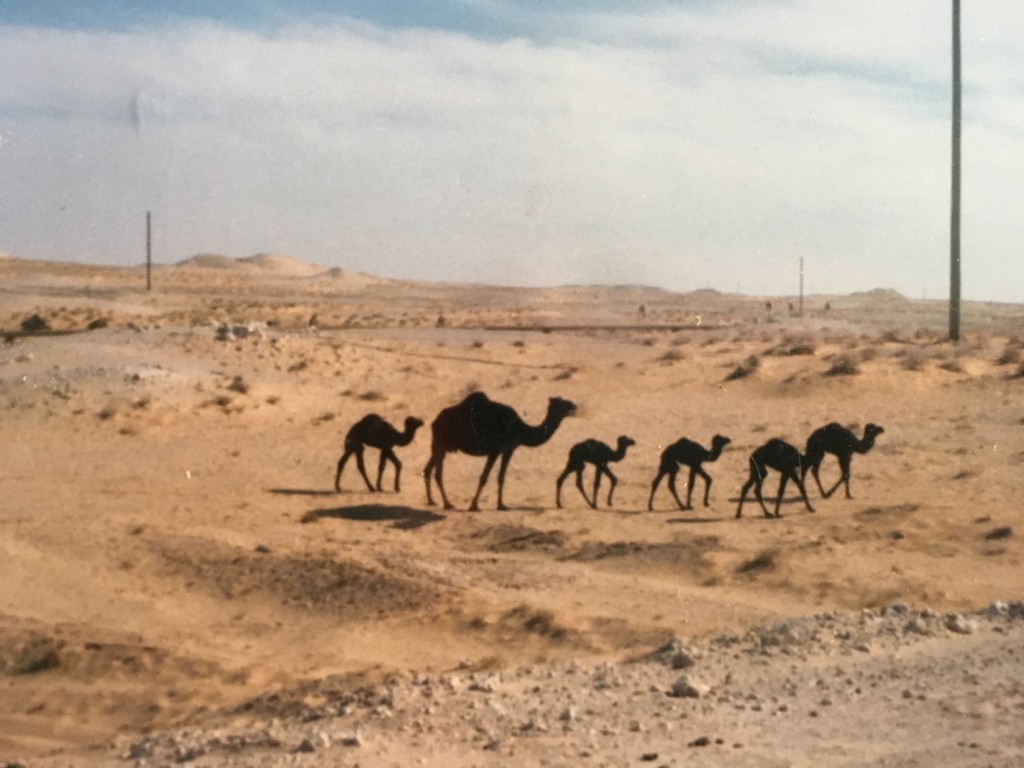“What is the name of the street you grew up on?” “What elementary school did you attend?” These are a couple of typical security questions you might see when setting up online banking or bill payment. I always have to sidestep those questions, though, because my answers are a bit…complicated. Growing up, my neighborhood was everywhere and nowhere; as the daughter of an engineer, we were constantly on the move, going from project to project, town to town. By the time I graduated from high school, I had lived in seven states and two countries and attended about a dozen different schools.
Moving meant figuring out the culture of the new place and how to fit in (or at least not stick out too far). I remember when we lived in Texas we were required to call our teachers “ma’am” and “sir”. The first time I did that in Michigan, though, I was sent to the principal’s office for being a smart aleck. Our next move was to Louisiana and back to the traditional southern respect. I became extremely adept at treading lightly and anticipating the reactions of those around me; in a way, I was a chameleon, blending in with the environment and the expectations of my neighbors.
Our biggest move both geographically and culturally was to Saudi Arabia. The name of that place probably brings certain images to mind, but an outsider’s view can not even come close to doing it justice. To say I loved Saudi is an understatement – I ADORED it there. Living in Udhailiyah made me feel like I was part of something, probably because it was the ultimate melting pot. My friends were from the US, South America, England, the Middle East and the Far East. There was the gardener, PB, who was a part of the famed Gurkha fighting force back in Nepal. Our dentist was from England and we had nurses from Sri Lanka. We learned Arabic and French from a Lebanese teacher. I square-danced with partners from Portugal and Sweden. I babysat children from Scotland and the Philippines. We were everyone.
We learned about tolerance. When public drinking fountains were turned off during Ramadan, we didn’t get upset because our freedoms were being violated, we simply respected our Islamic neighbors enough to eat and drink inside. The Saudi security officers let us have our Christmas parties (Santa would go from house to house in a golf cart) and I once even found a nativity scene snow globe at an Arab souk.
We learned about community. Our particular camp was quite far inland and isolated from the rest of the country, so there is a certain amount of dependence on each other in those circumstances. There wasn’t a lot of entertainment, either – TV only ran a few hours each day and was heavily censored, as were movies – so we spent time with each other, getting to understand and appreciate our differences. As another expat brat said, “Living there didn’t change me. It formed me. It’s not that I accept other cultures; it’s that I never question their validity in the first place.”
We truly believed in the legitimacy of our friends’ beliefs and would have fought hard against anyone who disputed them; and yet we still felt the freedom to have our own set of values and norms. I think our ability to embrace each other in this way was because we were curious about our friends – it’s hard to hate the familiar. Part of the divisiveness of the current American culture is the lack of healthy curiosity about what really makes each other tick; it’s easier to dismiss your enemies when you don’t see them as actual living, breathing people. For all the oversharing that takes place on social media, I don’t believe we really know (or care to know) one another.
Although I am proudly American, the culture shock back in the US was a huge surprise. I felt small and unnecessary. The sense of community that so permeated everyday life in Saudi was not present; things were homogenized and sanitized and rather colorless. Even decades after leaving the Middle East, there is a tremendous sense of loss and I grieve the sense of belonging that I left behind.
But community can be everywhere and can be created in the simplest ways. Talking to a young woman in line at the grocery store led to the discovery that she grew up just a few miles away from the boarding school I attended in Arizona. Complimenting a fellow traveler’s shoes on public transport led to a discussion on our mutual fears for our daughters starting middle school.
We are more alike than we often want to believe. We are all lonely to some degree, and we all just want to be heard no matter our skin tone or belief system – THAT is the shared experience that can be a starting point. There is nothing quite like the experience of recognizing a kindred soul in the face of a stranger. That is how community begins.
Article originally appeared in Connections
by Tammie Vanoss

